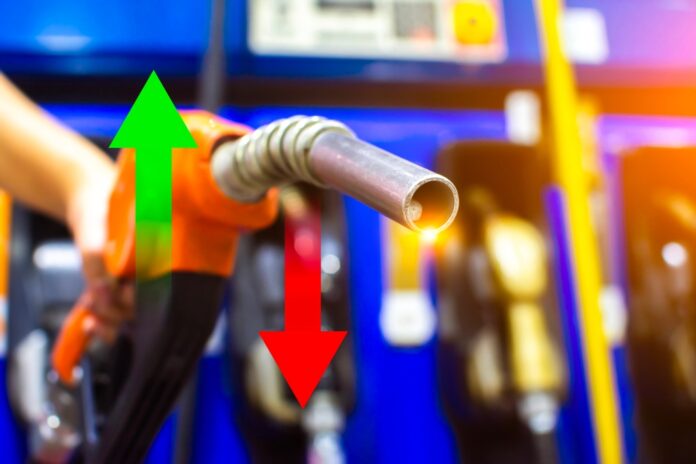The various fuel retailers on Monday announced a price rollback effective Tuesday morning, cutting gasoline prices by P0.10 per liter and kerosene by P0.50 per liter. This follows two consecutive weeks of price hikes that saw gasoline rise by P2.50 per liter and both diesel and kerosene increase by P1.60 per liter. Diesel prices remain unchanged.
The price reduction comes as a response to fluctuations in global crude oil prices affected by recent geopolitical events. An independent fuel retailer said that while an increase was initially expected, the recent imposition of tariffs on various countries by the United States contributed to the drop in global oil prices.
Leading fuel companies such as Seaoil and Caltex have reduced gasoline prices by P0.10 per liter and kerosene by P0.50. Other companies, including Jetti, PTT, and Clean Fuel, similarly adjusted gasoline prices but do not sell kerosene.
According to the Department of Energy (DOE), as of 1 April, the price of gasoline (RON91) in Manila stands at P59.21 per liter, diesel at P53.10 per liter, and kerosene at P71.87 per liter. Year-to-date data from the DOE also shows a net increase of P4.65 per liter for gasoline, P4.45 for diesel, and P0.90 for kerosene.
Leo Bellas, president of Jetti Petroleum Inc., explained that prior to the tariff announcement, crude prices had been rising as sanctions bite oil-producing nations such as Iran, Venezuela, and Russia. The ongoing Middle East tensions add to the pressure. The new tariffs raised concerns that a global trade war could slow economic growth and dampen demand for crude oil.
Additionally, Bellas said that the Organization of the Petroleum Exporting Countries (OPEC) and its allies plan to increase oil production next month, further putting downward pressure on prices as fears of an oversupply, coupled with rising U.S. crude inventories, continue to shape the market.
For motorists, this rollback brings much-needed relief after weeks of escalating fuel costs. However, with volatile global markets, further price shifts are expected as geopolitical factors and supply dynamics evolve.







